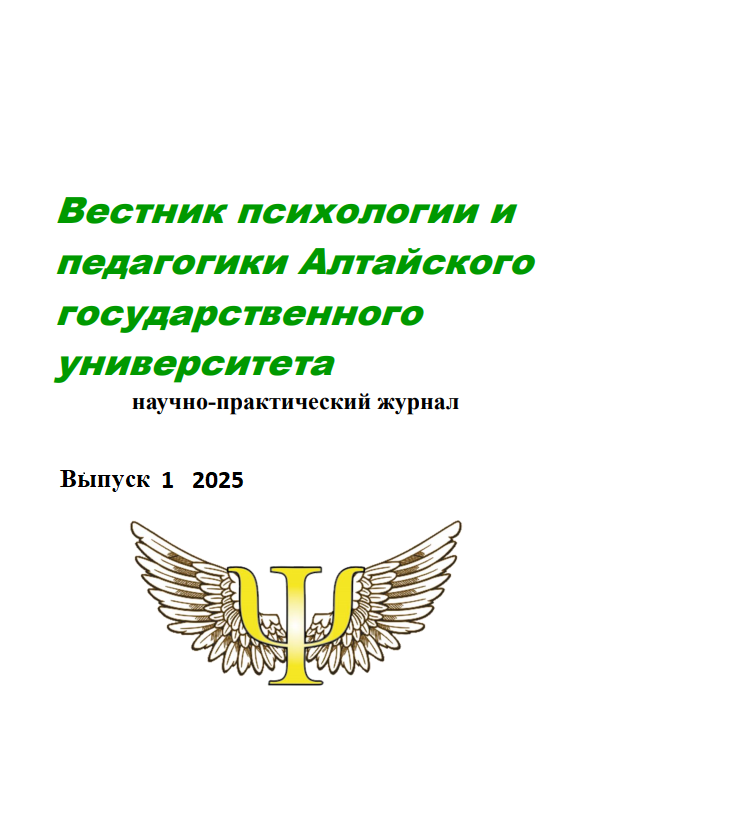STRATEGIES FOR ADDRESSING THE CHALLENGES OF CONSCIOUSNESS IN COGNITIVE SCIENCE
УДК 159.9.01
Abstract
The article elucidates theoretical frameworks aimed at addressing the complexities surrounding consciousness within the realm of contemporary cognitive science. It is evident that current research predominantly focuses on identifying the neural correlates of consciousness. Concurrently, a pivotal concept within the explanatory models proposed by cognitive scientists is the notion of 'information.' Specifically, the quantity of integrated information, as posited in D. Tononi's theory, serves as a metric for assessing the intricacy of consciousness as a subjective experience. This perspective is largely endorsed by D. Chalmers, who advocates for the concept of information panpsychism. Furthermore, an emerging area of inquiry in cognitive research is 'embodied cognition.' It is plausible to anticipate that the synthesis of findings from various scientific investigations will culminate in the development of a theory possessing significantly greater explanatory power than those currently available.
Downloads
References
Агафонов А.Ю. Когнитивная психомеханика сознания, или Как сознание неосознанно принимает решение об осознании. Самара : Бахрах-М, 2007. 336 с.
Аллахвердов В.М. Собрание сочинений: в 7 т. Т. 1: Опыт теоретической психологии. СПб. : Владимир Даль, 2021. 703 с.
Аллахвердов В.М. Собрание сочинений: в 7 т. Т. 2: Сознание как парадокс (экспериментальная психологика). СПб. : Владимир Даль, 2021. 703 с.
Бородай С.Ю. Несколько аргументов в пользу концепции воплощенного познания // Философский журнал 2024. № 17(2). С. 137–152. https://doi.org/10.21146/2072-0726-2024-17-2-137-152.
Грациано М. Наука сознания. Современная теория субъективного опыта. М. : Альпина Нон-фикшн, 2021. 254 с.
Деан С. Сознание и мозг. Как мозг кодирует мысли. М. : Карьера-Пресс, 2018. 416 с.
Деннет Д. Разум от начала до конца. Новый взгляд на эволюцию сознания от ведущего мыслителя современности. М. : Эксмо, 2021. 717 с.
Сет А. Быть собой: Новая теория сознания. М. : Альпина Нон-фикшн, 2023. 429 с.
Федотова А.А. К вопросу о когнитивных основах выражения категорий пространства и времени в текстах разножанровой принадлежности // Известия СПбГЭУ. 2021. № 4 (130). С. 199–207.
Baars B. A cognitive theory of consciousness. California: Cambridge University Press, 1988. 448 p.
Chalmers D.J. Facing up to the problem of consciousness // Journal of Consciousness Studies. 1995. № 2(3). Р. 200–219.
Crick F., Koch, C. Towards a Neurobiological Theory of Consciousness // Seminars in Neuroscience. 1990. № 2. Р. 263–275.
Dennett D.C. Consciousness explained. Boston, MA: Little, Brown, 1991. 500 р.
Lamme V.A.F. Visual functions generating conscious seeing // Frontiers in Psychology. 2020. T. 11. Article number: 83. URL: https://doi.org/10.3389/fpsyg.2020.00083
Revonsuo A. Inner presence: Consciousness as a biological phenomenon. MIT Press, 2006. 473 р.
Thompson E. Sensorimotor Subjectivity and the Enactive Appoach to Experience // Phenomenology and the Cognitive Sciences. 2005. Vol. 4. P. 407–427. https://doi.org/10.1007/s11097-005-9003-x
Tononi G. An information integration theory of consciousness // BMC Neuroscience. 2004. № 5. Article number: 42. https://doi.org/10.1186/1471-2202-5-42.
References:
Agafonov A.Yu. Kognitivnaya psikhomekhanika soznaniya, ili kak soznanie neosoznanno prinimaet reshenie ob osoznanii. Samara : Bakhrakh-M, 2007. 336 p.
Allakhverdov V.M. Sobranie sochinenii: V. 1: Opyt teoreticheskoi psikhologii. Saint Petersburg : Vladimir Dal', 2021. 703 p.
Allakhverdov V.M. Sobranie sochinenii. Vol. 2. Soznanie kak paradoks (eksperimental'naya psikhologika). Saint Petersburg: Vladimir Dal', 2021. 703 p.
Borodai S.Yu. Neskol'ko argumentov v pol'zu kontseptsii voploshchennogo poznaniya. Filosofskii zhurnal 2024. No 17(2). P. 137–152. https://doi.org/10.21146/2072-0726-2024-17-2-137-152.
Gratsiano M. Nauka soznaniya. Sovremennaya teoriya sub"ektivnogo opyta. Moscow : Al'pina Non-fikshn, 2021. 254 p.
Dean S. Soznanie i mozg. Kak mozg kodiruet mysli. Moscow : Kar'era-Press, 2018. 416 p.
Dennet D. Razum ot nachala do kontsa. Novyi vzglyad na evolyutsiyu soznaniya ot vedushchego myslitelya sovremennosti. Moscow : Eksmo, 2021. 717 p.
Set A. Byt' soboi: Novaya teoriya soznaniya. Moscow : Al'pina Non-fikshn, 2023. 429 p.
Fedotova A.A. K voprosu o kognitivnykh osnovakh vyrazheniya kategorii prostranstva i vremeni v tekstakh raznozhanrovoi prinadlezhnosti. Izvestiya SPbGEU. 2021. No 4 (130). P. 199–207.
Baars B. A cognitive theory of consciousness. California: Cambridge University Press, 1988. 448 p.
Chalmers D.J. Facing up to the problem of consciousness. Journal of Consciousness Studies. 1995. No 2(3). Р. 200–219.
Crick F., Koch, C. Towards a Neurobiological Theory of Consciousness. Seminars in Neuroscience. 1990. No 2. Р. 263–275.
Dennett D.C. Consciousness explained. Boston, MA: Little, Brown, 1991. 500 р.
Lamme V.A.F. Visual functions generating conscious seeing. Frontiers in Psychology. 2020. Vol. 11. Article number: 83. https://doi.org/10.3389/fpsyg.2020.00083
Revonsuo A. Inner presence: Consciousness as a biological phenomenon. MIT Press, 2006. 473 р.
Thompson E. Sensorimotor Subjectivity and the Enactive Appoach to Experience. Phenomenology and the Cognitive Sciences. 2005. Vol. 4. P. 407–427. https://doi.org/10.1007/s11097-005-9003-x.
Tononi G. An information integration theory of consciousness. BMC Neuroscience. 2004. № 5. Article number: 42. https://doi.org/10.1186/1471-2202-5-42.

This work is licensed under a Creative Commons Attribution 4.0 International License.
Bulletin of Psychology and Pedagogy of Altai State University is a golden publisher, as we allow self-archiving, but most importantly we are fully transparent about your rights.
Authors may present and discuss their findings ahead of publication: at scientific conferences, on preprint servers, in public databases, and in blogs, wikis, tweets, and other informal communication channels.
Bulletin of Psychology and Pedagogy of Altai State University allows authors to deposit manuscripts (currently under review or those for intended submission) in non-commercial, pre-print servers such as ArXiv.
Authors who publish with this journal agree to the following terms:
- Authors retain copyright and grant the journal right of first publication with the work simultaneously licensed under a Creative Commons Attribution License that allows others to share the work with an acknowledgement of the work's authorship and initial publication in this journal.
- Authors are able to enter into separate, additional contractual arrangements for the non-exclusive distribution of the journal's published version of the work (e.g., post it to an institutional repository or publish it in a book), with an acknowledgement of its initial publication in this journal.
- Authors are permitted and encouraged to post their work online (e.g., in institutional repositories or on their website) prior to and during the submission process, as it can lead to productive exchanges, as well as earlier and greater citation of published work (See The Effect of Open Access).







